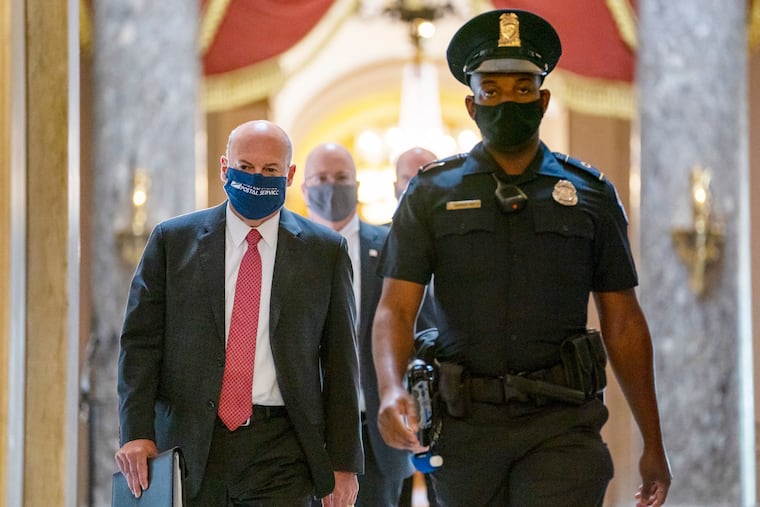As 90,000 Pennsylvanians await unemployment checks, the state’s tone deaf response is just another glitch | Editorial
An 8% backlog of state unemployment cases means that 90,000 workers who filed for benefits between March 15 and June 20 still haven’t gotten checks.

In this year where a new disaster seems to unfold every day, the loss of the $600 extra unemployment benefits, which expired last week for millions of American households, is monumental. So is Congress’ inability to reach agreement to extend this assistance that means survival for those who lost their livelihoods when the economy shut down.
Anyone who thought the COVID-19 catastrophe could pull a polarized country together is by now bitterly disappointed at this latest stalemate. Especially because the debate over whether to extend the money that kept millions from falling directly and suddenly into poverty has dredged up tired old assumptions about Americans’ aversion to work.
Republicans, including President Trump, claim the enhanced benefit could disincentivize people from going back to work, since many are seeing more money coming in than they did while working. The idea that people would prefer to make more money doing nothing than returning to jobs is outrageous and demeaning – and particularly heartless during a pandemic where some workers are understandably concerned that a return to work would be fatal. Further, many who did return to work are now facing a second wave of layoffs. The prevailing myth that Americans are happy to depend on the government is especially galling as Congress members prepare to recess for their August vacation.
Adding outrage to this debate is the number of people throughout the country who are still waiting to receive any unemployment benefits. One study found that by the end of May, only 57% of unemployment claims filed nationwide have been processed.
Pennsylvania is no exception. According to a recent Inquirer report, an 8% backlog of state unemployment cases means that 90,000 workers who filed for benefits between March 15 and June 20 still haven’t gotten checks. The sheer volume of claims that saw in excess of 700,000 claims in the last two weeks in March and now reach about 30,000 per week taxed an already overtaxed department that, like many, operated with antiquated systems. We can sympathize with the workers who are handling the flood of claims. But while the state’s Department of Labor and Industry has scrambled to hire more people, they are still responsible for failing to adequately respond, five months into the shutdown.
The Labor Office is not shy about touting how busy they’ve been since March, logging in 229,726 overtime hours to handle over 300,000 calls and over 600,000 emails. Those are big numbers, but who are they supposed to impress? If you’ve lost your job and can not reach the unemployment office to get questions or claims settled, this attempt at public relations has got to seem tone deaf, if not downright cruel. It would be more productive to fix the failures and glitches in software, the confusing and often conflicting information, or better yet, develop an actual plan to fix this problem, like setting up separate communication points for those whose benefits are still outstanding, or expanding the capacity to handle different types of calls. Fortunately, at the local level, the Philadelphia Unemployment Project and Philadelphia legal assistance offer assistance. But the state needs to do better.
.